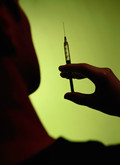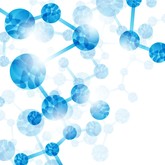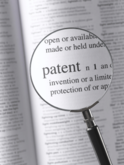Biosimilars
Alteogen wins process patent for aflibercept biosimilar
South Korean biologicals company Alteogen announced on 4 January 2019 that it had been granted a process patent for its method of producing an aflibercept biosimilar, ALT‑L9, referencing Regeneron’s blockbuster drug Eylea (aflibercept). The patent is a novel method for producing the anti-vascular endothelial growth factor (anti-VEGF) fusion protein.
Positive phase III results for rituximab biosimilar CT-P10
Celltrion has presented positive phase III results for its rituximab biosimilar CT‑P10 at the American Society of Hematology Meeting (ASH) annual meeting.
CKD Pharma’s darbepoetin alfa biosimilar launched in Japan
On 4 December 2018, South Korean drugmaker Chong Kun Dang Pharmaceutical (CKD Pharma) announced that it had received approval for its second-generation anaemia biosimilar, CKD‑11101 (darbepoetin alfa).
EMA continues to be open to alternative clinical development strategies for biosimilars
In the European Union (EU) and other highly regulated markets, companies need to prove the similarity of proposed biosimilars to the established reference product for gaining market authorization. European regulators recommend using a stepwise approach whose first steps consist of a demonstration of similarity at the analytical level and via non-clinical studies. In addition, as a later step, clinical studies are an important source of additional evidence.
Positive phase III results for rituximab biosimilar PF 05280586
Pfizer has presented positive phase III results for its rituximab biosimilar PF‑05280586 at the American Society of Hematology Meeting (ASH) annual meeting.
Celltrion wins patent suit in Japan over trastuzumab biosimilar
South Korean biotechnology company Celltrion announced on 5 November 2018 that it had won a patent suit in Japan involving its trastuzumab biosimilar, Herzuma (CT‑P6)
EMA approval for bevacizumab biosimilar Zirabev
The European Medicines Agency’s (EMA) Committee for Medicinal Products for Human Use (CHMP) announced on 13 December 2018 that it had recommended granting marketing authorization for the bevacizumab biosimilar Zirabev.
Long-term follow-up of switching to biosimilar infliximab
A study of long-term follow-up data after switching to biosimilar infliximab appears to show identical retention rates, according to French researchers [1].
Trastuzumab and agalsidase beta biosimilars launched in Japan
Japanese firms have announced the launch of trastuzumab and agalsidase beta biosimilars in Japan on 28 November 2018.
Biosimilars makers in Canada to launch patient support programme
Biosimilars Canada, an association representing Canada’s biosimilar makers, announced on 22 November 2018 that it had chosen pharmaceutical service provider Innomar Strategies to be the preferred provider for the association’s Patient Support Program (PSP) platform.













